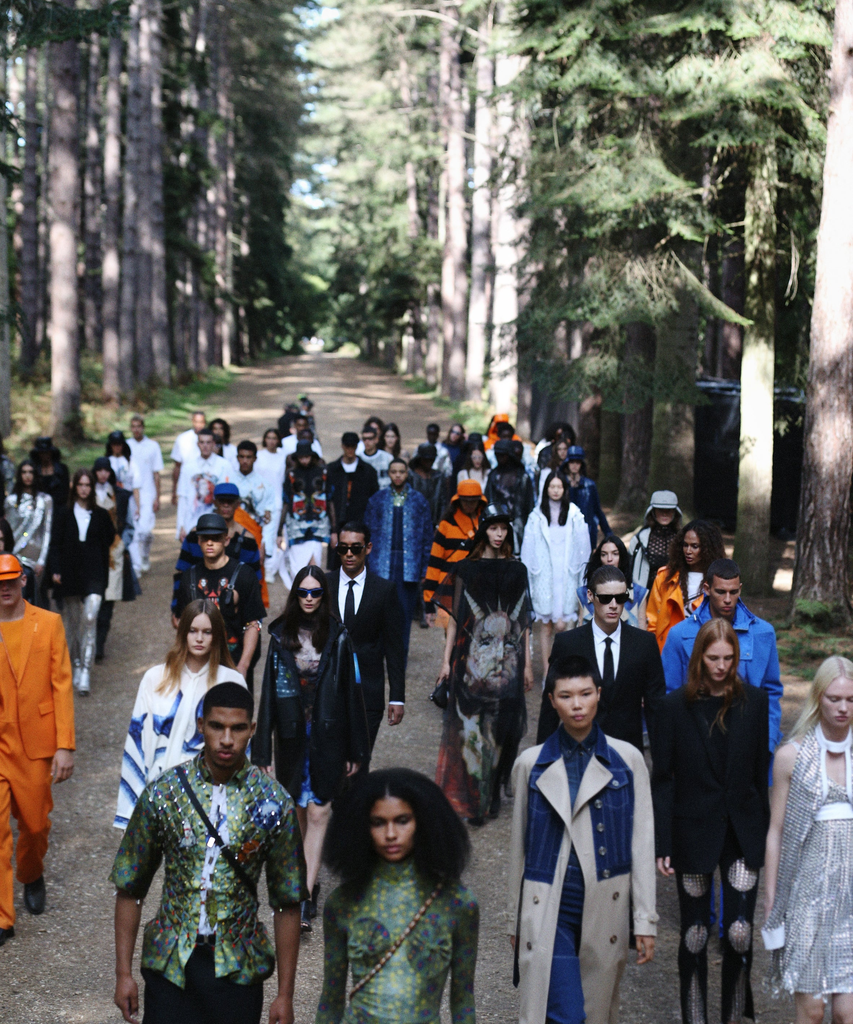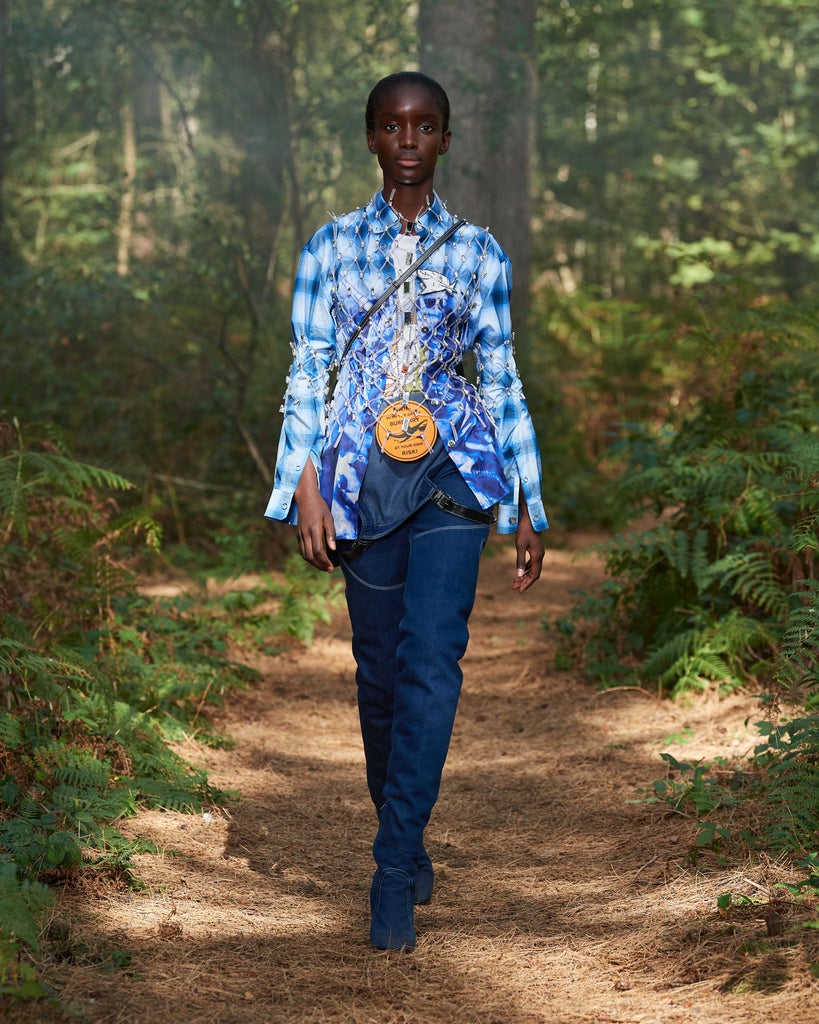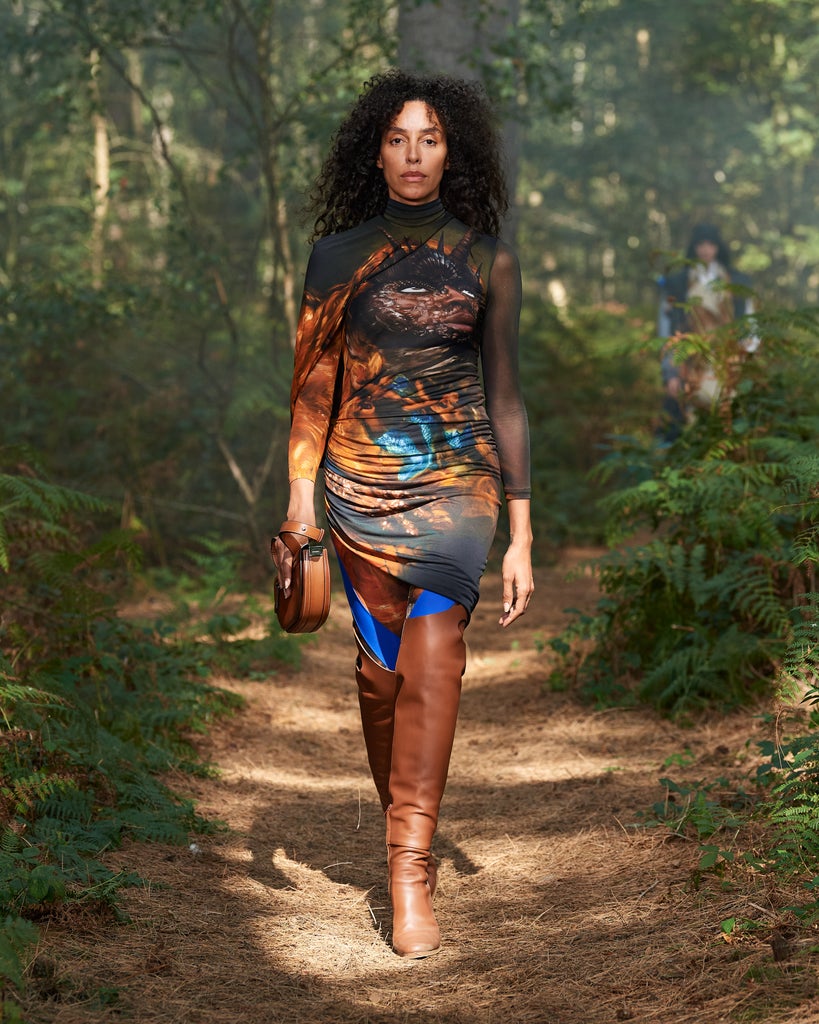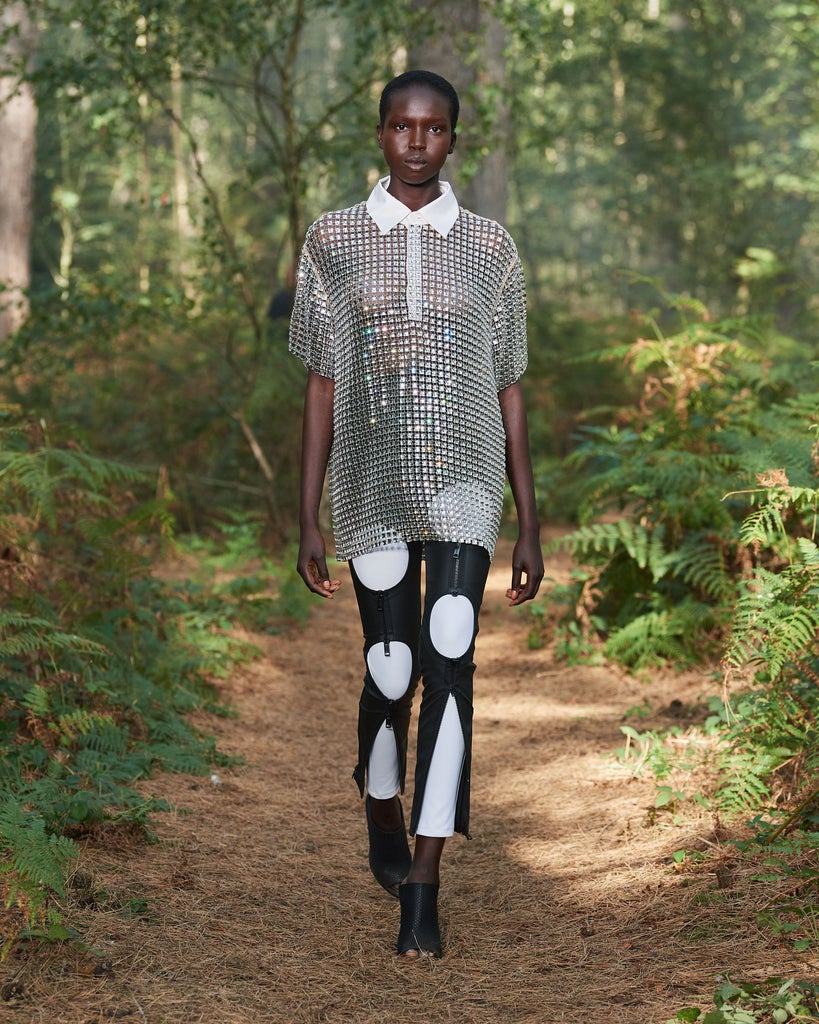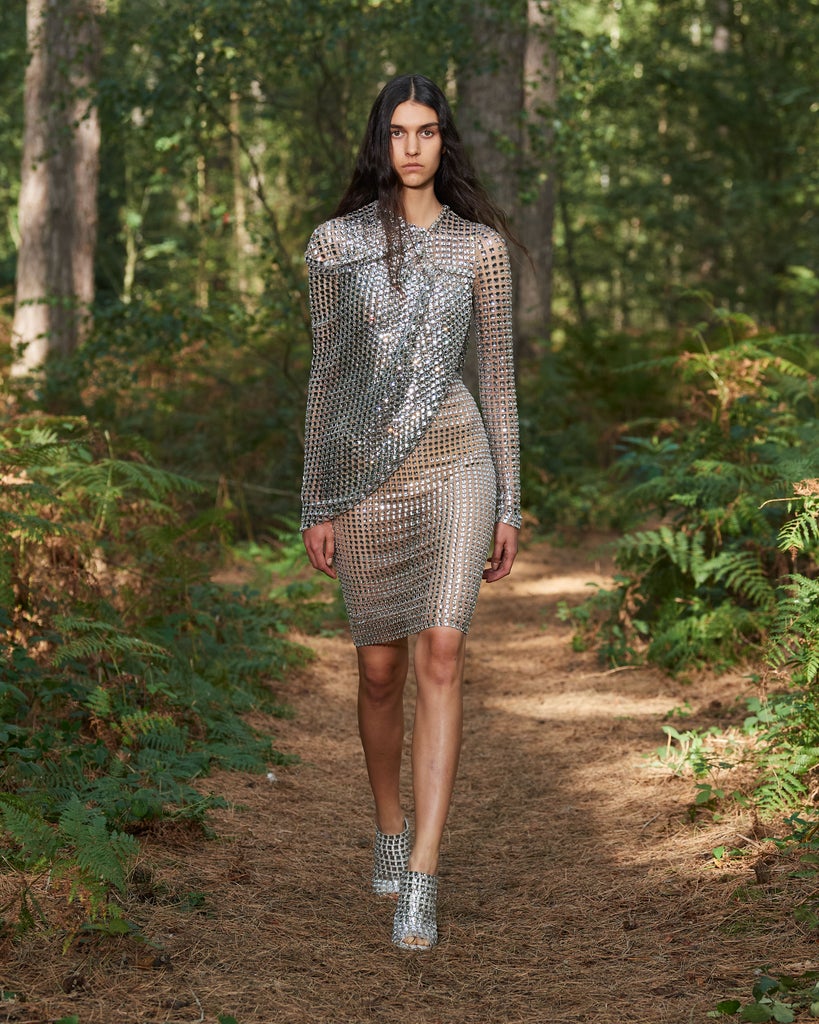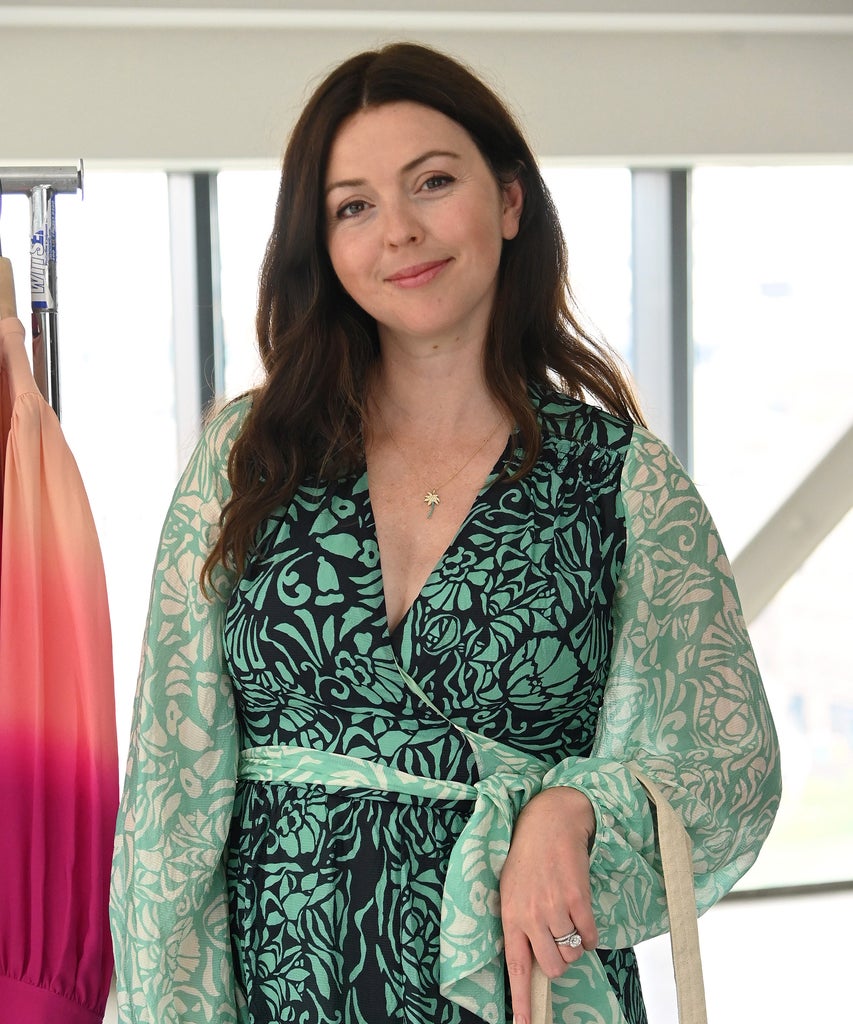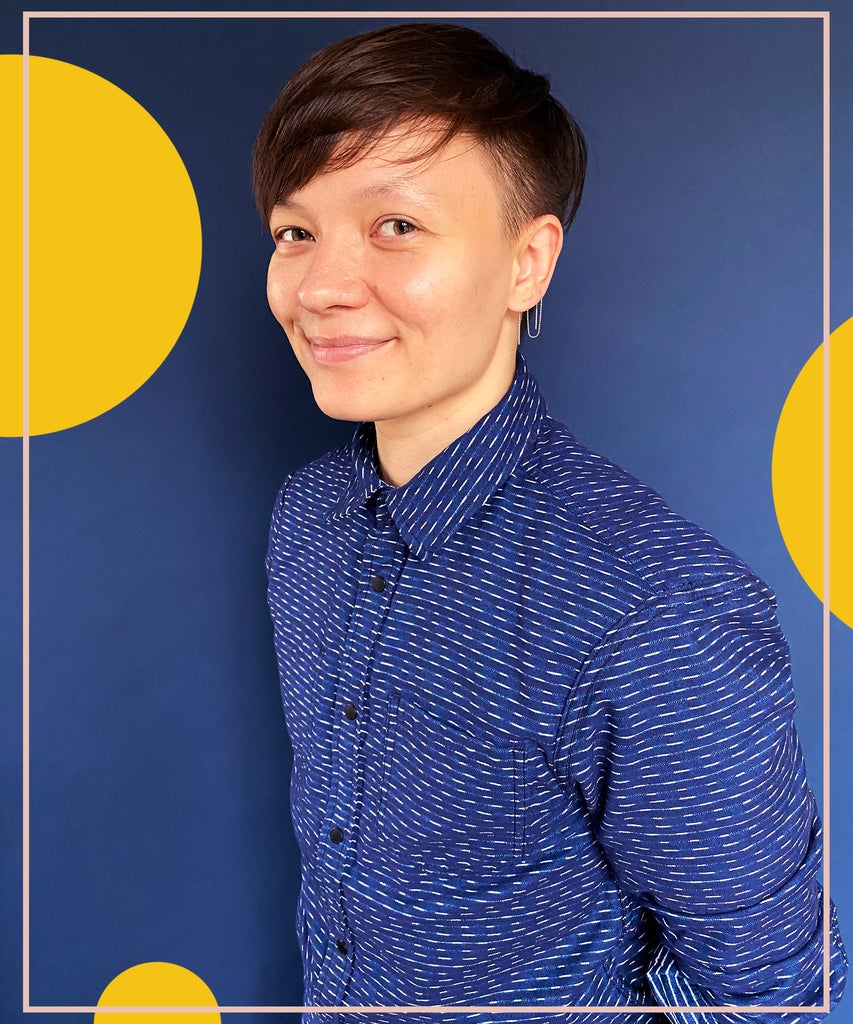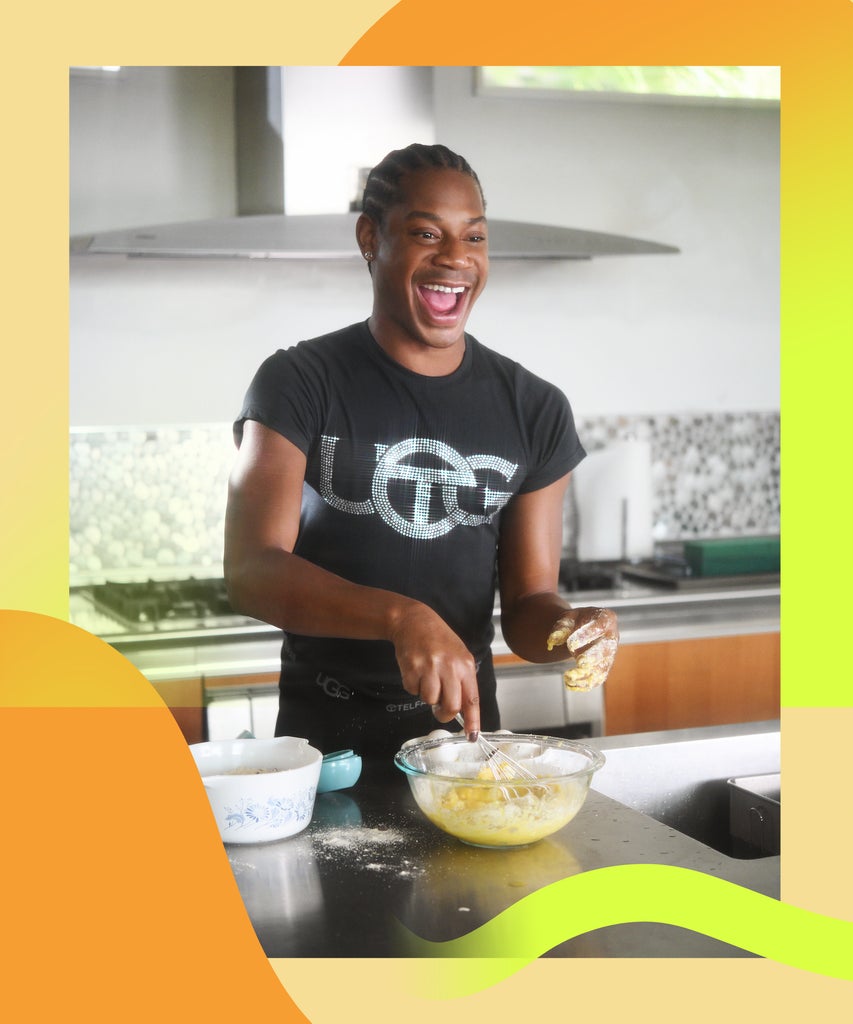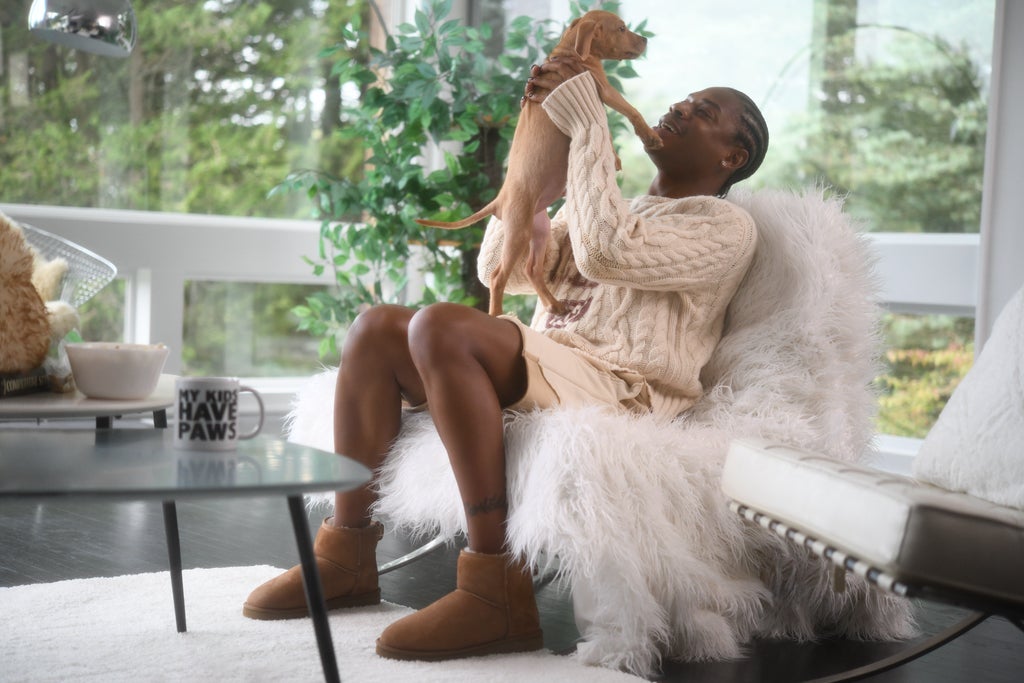Picking up your entire life and moving to another country is never easy. Harder still is fleeing persecution for who you are immediately following one of the worst financial crises in history. Al Sanimirova experienced exactly that when they came to the U.S. in 2009, without money, connections, or the ability to speak English. It’s out of this hardship that they created an inclusive fine jewelry brand called Automic Gold.
Making jewelry may have started out as the only way Sanimirova could make money, but it morphed into a means of expressing their identity as a non-binary person. From there, Sanimirova realized there was a market for fine jewelry that was both inclusive and accessible. Automic Gold has filled that need for many, but it didn’t happen overnight.
In this month’s edition of Talking Shop, Sanimirova tells us about their experience launching Automic Gold, from struggling to understand a capitalist society’s obsession with branding to rejecting the ridiculous notion of standard sizes.
Refinery29: Walk me through the process of launching Automic Gold.
Al Sandimirova: I’m an LGBT refugee. I immigrated to the U.S. in 2009, when I was 20 years old. I had to escape because my family and country were abusive so I came to this country. I hadn’t finished college and I never worked before in my life. I was trying to find a job locally, but I couldn’t really find anything because it was right after the economic crisis. I kind of had no choice but to start my own thing.
I started to buy old jewelry from the gold refinery. I would then repair them, appraise them, and sell them on eBay. After a while, I realized what my identity was. I am non-binary and particularly, non-binary with a more masculine style. Working with fine jewelry and diamonds, everything is so feminine or overly masculine, which also doesn’t fit for me. So I started to create pieces to just wear myself and people started asking and buying. One time, for Hanukkah, my friend bought 15 pairs of earrings I had designed, and I was like, ‘Oh, I think I need to make a brand around this.’ So in 2016, I officially started my line, and I launched the website in 2017.
You mentioned you didn’t finish college and didn’t have work experience before coming to America, have you had any formal business training since then?
Nope. I did some college in the math department, but I didn’t get to finish it because I had to migrate. I came to the U.S. without money, education, English knowledge, and no family.
What is a small business to you?
People come and work for me from corporate jobs, and I just don’t have that experience at all. What comes to my mind is that a small business is mostly about community, which compared to more corporate environments that are all about profits or achieving goals, is very different. A small business is when you work in one place, and you can see into the next room where everything is made and you can connect with all of the people within the business. It’s all about building a community. Everybody is a team and people are supporting each other. It’s like a family in that way. Automic Gold is not just my income, it’s my hobby and my lifestyle.
Have you received any funding for Automic Gold?
No, I have had offers, but I refuse to take funding or loans because I want to build a business that will be good for the environment, for customers, and for employees. I don’t care much about growing or profits. I just want to have a salary for all of us and live well. I don’t want to have to compromise my values for numbers. I have sales, I have support, and I can afford to eat so why take an investment and probably work for some e-corp? That doesn’t make sense to me at all. Also, it’s my business! I came up with it. It took me time to figure out so why am I supposed to share? I make the profit. I don’t want some investors to make money off me.
It seems like you’ve faced a lot of personal challenges but what has been your biggest business challenge so far?
That’s a hard question. Every day is a challenge. The small business owner has so many problems every day. I can never really take time off. I do not have someone who can do my job while I am on vacation. It’s difficult to balance and take time off. I want to grow my business, respond fast to customers, and not miss opportunities, so it’s a challenge to not check emails while I am not working.
For me, as a person who did not grow up in a capitalist system, it was also particularly challenging to see how much I needed to invest in branding. For a long time, I didn’t even want to create the brand. I was like, “Oh if the designs are good, people will buy them.” Mostly through friends and word of mouth, I learned I needed an actual brand. I thought I could just make good merchandise and it would sell, but no. The merchandise is responsible for less than half of the success. I had to change my mindset that I’m not just selling the goods. A clever business is more about the brand, its values, and how you present and package yourself. For me, that was a very unusual switch since I did not grow up in this culture.
How did you come to change your mind? The branding is amazing. Your website is so appealing and the Instagram photos are beautiful.
Oh, it’s my employees. I have ten full-time employees and two part-time employees. I hired creative people who think like that because I wouldn’t be able to do that by myself.
I also want people to know that even though we have grown a lot, we’re not as big an operation as some of our corporate competitors. I want people to be nice to my employees and to my customer care representatives. Sometimes people come to us with this Amazon mindset, but we’re not set up like that. Every nice message really counts and every mean one hits. I have two people who are answering emails now, and I want people to realize that behind our brand are human faces so be nice to them.
What has been your biggest business win so far?
That was definitely hitting 10 million in total sales for the last three years! That was my biggest dream. I’ve always wanted to make more sales. In the past, whenever I would tell somebody that I was a small business owner, they would be like “Oh, you have an Etsy store and you make jewelry in your apartment. How cute?” I was always like, “No, I employ people. Fuck you.” Nobody ever took me seriously, and it made me so mad. So I was pushing to make more sales, but I wasn’t doing it because I just wanted more numbers. It wanted to prove myself. To see that I put myself out there and customers really supported it — the 10 million sales was just shocking to me and really nice.
That’s an amazing accomplishment. Have you thought about where you go from here? What’s your ultimate goal with Automic Gold?
I really just want Automic Gold to be inclusive. I want us to always be size-inclusive and be inclusive of different models. We’re still the only fine jewelry brand that carries a wide range of sizes for all of our items. Usually, other brands will have “plus sizes” in a separate collection. How ridiculous is that? Other brands say standard sizes are 5 to 9, but 9 is the average size for an American woman so how is it that nobody else goes over that for fine jewelry? People are told “just order custom,” and how must that feel?
Right now, when people shop for fine jewelry, there are expensive brand names that could start at $1,000 a pop or it’s some jeweler with bad quality pieces. I want to have good price, good quality fine jewelry for everybody. I want queer couples and people of all sizes to be able to come into any of my stores to buy an engagement ring, a wedding band, a nameplate, or something else special. Right now, people might not think of fine jewelry as something that’s even accessible. I want it to be fashionable, good quality, affordable, and in all sizes. My other dream is to have little stores in every city and in malls across America that offer this affordable and inclusive fine jewelry.
This interview was edited for length and clarity.
In Refinery29’s new Talking Shop series, we’re chatting with owners of up-and-coming small businesses about their experiences launching, the big challenges and wins they’ve faced, and of course, their products and services. Discover new spots to patronize, while getting an intimate look at what it takes to run a small business in today’s economy. Do you run a small business or do you want to recommend a small business you’d like to see featured on Talking Shop? Tell us more about it here.
Like what you see? How about some more R29 goodness, right here?
Talking Shop With The House Of Saka Founders
The Dream Job Is Dead. Did It Ever Really Exist?
How To Find Black-Owned Businesses Near You
